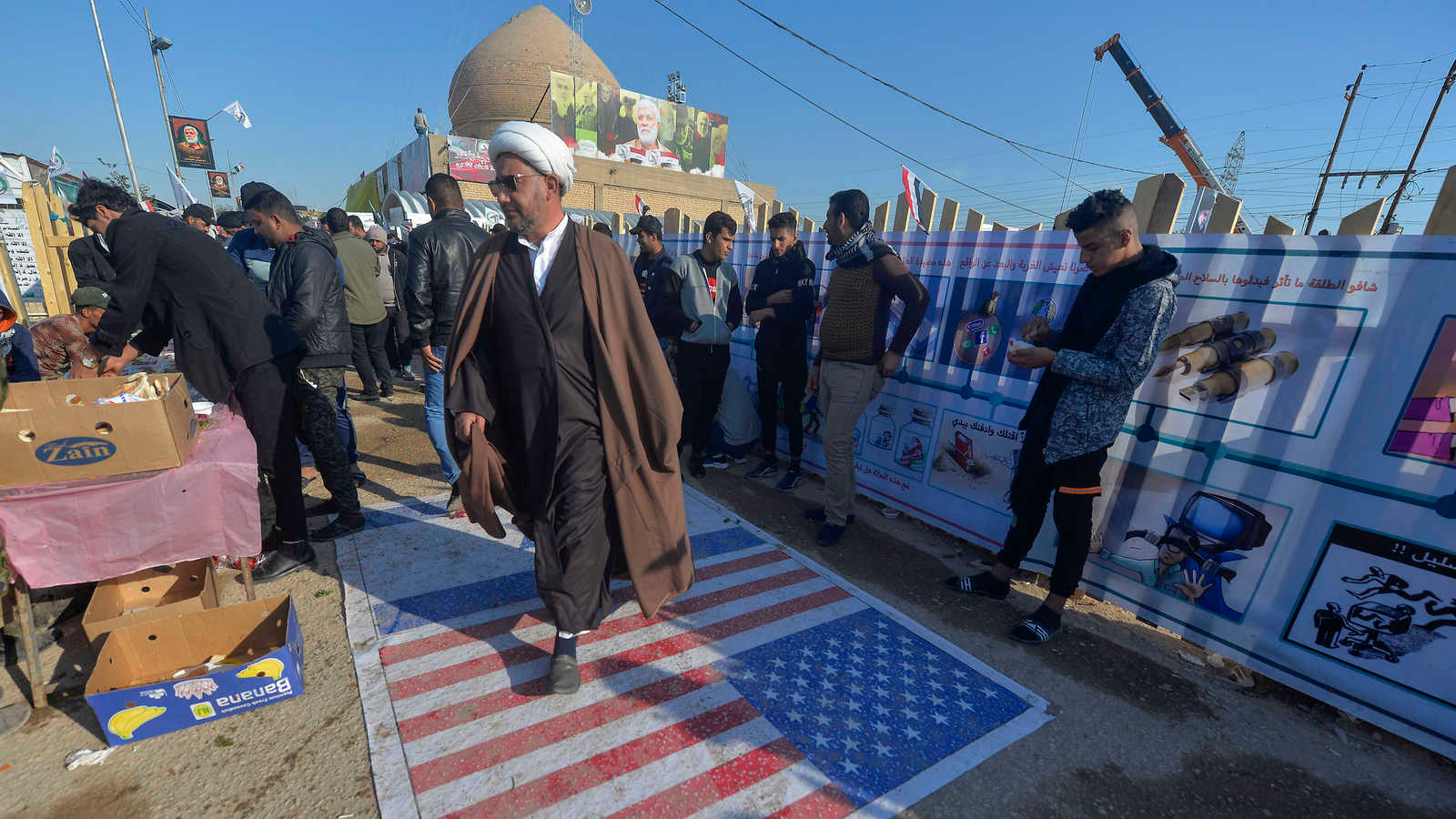
Officials in Tehran renewed calls for an end to the American military presence in neighboring Iraq as a response to the US killing of Iran’s top commander Qasem Soleimani.
Iran’s Foreign Minister Mohammad Javad Zarif said the ouster of American forces from neighboring Iraq would be “the best response” to the US killing of Gen. Qasem Soleimani. The Iranian commander died in a US airstrike outside Baghdad’s international airport last January.
Zarif made the comments at a meeting with his Iraqi counterpart Fuad Hussein in Tehran on Wednesday. The top Iranian diplomat expressed gratitude to the Iraqi side for its legal pursuit of the Soleimani case, with hopes that those behind “the heinous crime … will face punishment through judicial proceedings.”
Hussein also sat down with Iranian President Hassan Rouhani. “We hope the new US administration will reconsider its policy and find that its military presence in the region harms security,” Rouhani said in a less confrontational tone compared with his previous statements about “cutting off the US feet from the region.” The Iraqi foreign minister declared that Baghdad is “relentlessly following up on the pullout of foreign forces through negotiations.”
Iran’s pledge has remained unchanged 13 months after Soleimani’s death,: a harsh revenge that Tehran says will be complete only when all US boots are off the ground across the Middle East. Iran’s judiciary has come up with a list of 48 individuals accused of involvement in the assassination. The country’s hard-liners have also issued specific death threats against former US President Donald Trump, who ordered the airstrike.
Those hard-liners have also criticized the government of Iraqi Prime Minister Mustafa Al-Kadhimi for dragging its feet on the matter, arguing that the new leadership in Baghdad prioritizes Washington over Tehran.
Unlike most of his predecessors, Kadhimi has sought to reassert Iraqi sovereignty, especially with regard to Iran’s support for certain Popular Mobilization Units (PMU) there. Some of these groups are accused of targeting American interests and attacking the US Embassy building in Baghdad with Iran-supplied rockets, though Tehran categorically denies providing them.
With such strikes becoming more frequent in the past few months, the Kadhimi administration’s relations with the Islamic Republic have been tense. It was not publicly known whether the Iraqi foreign minister addressed the topic during his February trip to Tehran. But back in September, amid an uptick in PMU attacks, Hossein paid a similar visit to relay a message from the Iraqi premier to Rouhani regarding the Islamic Republic’s activities on the soil of its neighbor.
 Eurasia Press & News
Eurasia Press & News

